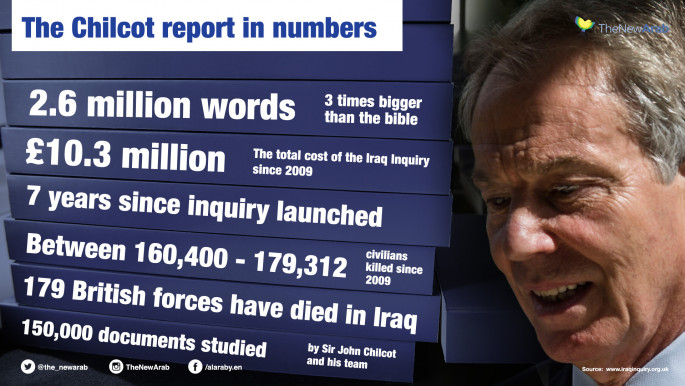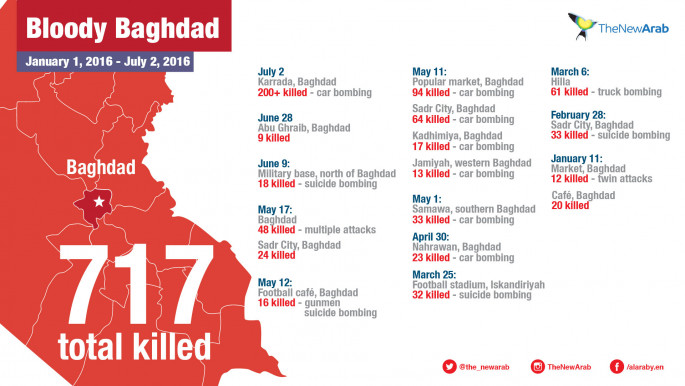Chilcot inquiry finds no place for mourning Iraqis
The Chilcot report was released just days after one of the deadliest bombings ever to hit the country tore through a crowded shopping area in Baghdad, killing at least 250 people.
The attack was claimed by the Islamic State [IS] group, which includes members of Saddam Hussein's toppled regime and has its roots in the insurgency that began after the dictator's overthrow in 2003.
The 2.6 million-word report resulting from an inquiry chaired by John Chilcot, which was seven years in the making, criticised Blair as having taken his country into a badly planned, woefully executed and legally questionable war.
While the report was hotly anticipated in London and has sparked widespread commentary and media attention, the reaction in Baghdad has been somewhat more muted.
"What report?" Iraqi foreign ministry spokesman Ahmed Jamal responded when asked for comment.
For Iraqis, the inquiry is little more than a distant academic exercise.
 |
| [Click to enlarge] |
"The report... will not change anything - all this is empty talk," said Zainab Hassan, aged 60.
Thirteen years of bloodshed
Abbas Salman Mahdi, 56, said the report's conclusion was somewhat less than surprising.
"Of course Britain and America made a mistake in taking part in the war," Mahdi said.
But "this report will not change anything for Iraq," he said.
Ali al-Alaq, a lawmaker from Prime Minister Haider al-Abadi's Dawa party, said whether or not the decision to topple Saddam was correct, it was made and cannot be undone.
"After all this time, I don't believe that this report will have an impact," Alaq said.
 |
They carried out their mission and toppled Saddam's regime, whether this decision was correct or not, and it had major effects on Iraq - Ali al-Alaq, Iraqi MP |
 |
"They carried out their mission and toppled Saddam's regime, whether this decision was correct or not, and it had major effects on Iraq," he said.
The invasion that overthrew Saddam - and a series of disastrous decisions by Washington and its allies that followed - set the stage for 13 years of bloodshed that plagues the country to this day.
Chief among these were the decisions to disband the Iraqi military and launch a "de-Baathification" programme targeting members of Saddam's party, both of which contributed to the rise of a bloody insurgency.
But the countries that toppled Saddam are not solely responsible for the current disastrous state of affairs.
Return to Iraq
Politicians bent on power, self-enrichment and revenge instead of building a viable state, as well as neighbouring countries that backed various armed groups, also played key parts in creating the hellish circumstances in which Iraqis now live.
 |
| [Click to enlarge] |
More than a decade after the fall of Saddam, IS militants overran large areas north and west of Baghdad, sweeping government forces aside and carrying out a slew of atrocities.
The offensive drew the US and Britain, among other countries, back into Iraq to carry out air strikes and provide training and other assistance to help Baghdad regain lost ground.
Despite all that has since transpired, Blair asserted following the release of the report that he "made the right decision and the world is better and safer" because of it.
It is a claim that the huge number of Iraqis who have lost relatives and friends, who have made daily trips to the morgue searching for the missing, who have faced bombings and death squads and kidnappings, would likely dispute.
Ghaith al-Ghaffari, 26, said he too does not believe the report will change anything, and that he would rather see concrete action on the part of those responsible.
"I would like them to truly contribute to the reconstruction of Iraq after they made this mistake," Ghaffari said.
"At the least, it is their duty to truly rebuild the country," he said.



